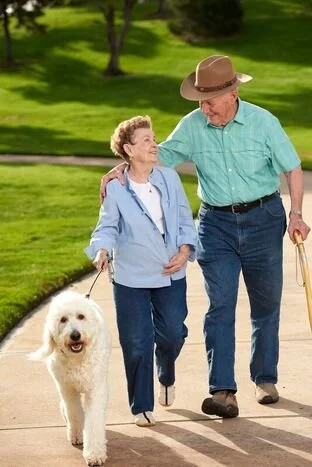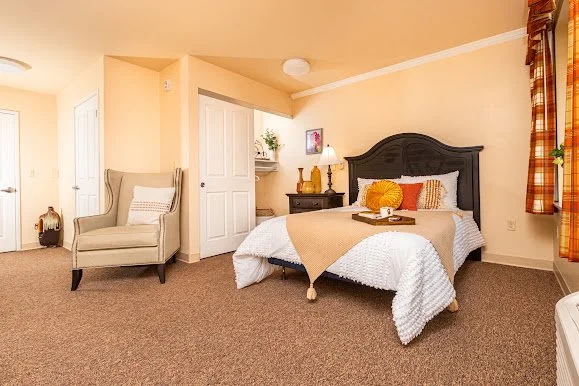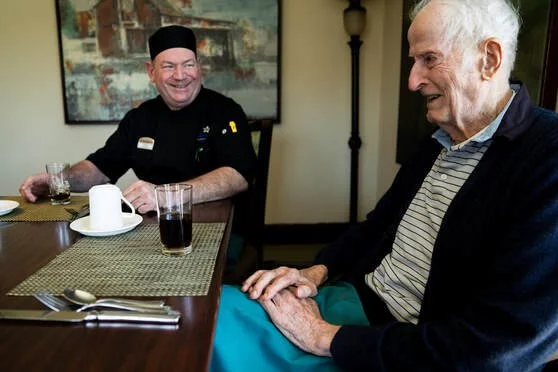MorningStar at North Ridge Specializes in Memory Care
If a spouse, parent or another loved one is living with Alzheimer’s or a dementia-related disease and the time has come for more comprehensive care, you will want the very best. However, the problem can lie in trying to figure out what is the best, and a good place to start is with a company you can trust.
MorningStar at North Ridge in Albuquerque is part of MorningStar Senior Living, which was founded in 2003 on a mission statement of honoring God, valuing seniors and investing generously in our staff. Our entire community is devoted to the care of those with memory loss diseases and designed to meet residents’ special needs.
To encourage independence, confidence and a sense of freedom we use clear wayfinding that makes it easier for residents to navigate hallways and recognize their own room. Warm and welcoming common areas including a secure courtyard and strolling paths help residents feel right at home. Our all-inclusive care provides a full range of services including senior care as well as meals tailored to the appetites and abilities of residents.
MorningStar’s holistic memory care is delivered by dedicated specialists through our proprietary program, Lavender Sky. The program embodies the philosophy of everything we believe and strive for in service to our memory-impaired residents as we encourage, engage and respect each individual.
To keep your loved one safe, we also use a technology called Safely You that allows us to detect and prevent falls for residents with (AI) Artificial Intelligence. Moreover, we are close to medical facilities such as DaVita Medical Center and Presbyterian Kaseman Hospital. For your convenience, our extensive services include transportation to and from medical appointments. Please contact us or visit our website for more information about Alzheimer’s care at MorningStar.
MorningStar is guided by a culture rooted in our mission of honoring God, valuing seniors, and investing in our team, which allows us to deliver services with warmth, sincerity and depth of purpose. We have built a reputation for creating homes filled with an atmosphere of love and community. Please contact us to learn more about the finest Alzheimer’s care in Albuquerque, NM.










